
views
Here are 18 proven ways to get rid of puffy eyelids.
Drink lots of water.

The area around your eyes swells up when you’re dehydrated. This is because the skin is desperately trying to retain all the water in it. To avoid this, drink 8-10 glasses of water a day, or drink water whenever you feel thirsty. Drinking too much alcohol can dehydrate you and contribute to puffy eyes for 12-24 hours the day after. Drinking more water to rehydrate yourself can help reduce puffiness caused by dehydration from alcohol.
Hold cold spoons against your closed eyes.

Cool 2 metal spoons in the freezer for about 2 minutes. Close your eyes and hold the backs of the spoons against your eyes for several minutes. The cold metal soothes and helps reduce puffiness! You can also try sweeping the cold spoons gently across bags under your eyes to reduce them. Press the backs of the spoons lightly against the puffy areas under your eyes, then slowly glide them out towards the outer corners of your eyes.
Try putting cucumber slices on your eyes.

The high water content in cucumbers hydrates your under-eye skin. Cucumber also contains vitamin K, which may help reduce inflammation and discoloration. Slice a cucumber thinly and chill the slices in the fridge before you use them. Sit back somewhere comfy, close your eyes, and place a slice on each eye for 10-15 minutes. Always wash and peel the cucumbers before using them. There is currently no clinical trial that has measured how much cucumber slices can help the skin around your eyes. However, one trial has suggested that cucumber juice can help fight wrinkles and restore the natural elasticity of the skin.
Place potato slices over your eyes.

Potatoes have a high water content, similar to cucumbers. As an added bonus, they stay cool longer. Peel the potato so you don’t get any dirt from the skin in your eyes; then, slice it up and put it in the fridge until it’s chilled. Sit in a reclining position, close your eyes, and put a slice of potato on each eye. Let the slices sit for about 10-15 minutes to combat puffiness. Potatoes also have enzymes and astringent properties that reduce inflammation and tighten the skin.
Press chilled tea bags against your eyes.

The caffeine in tea can shrink blood vessels that cause puffy eyes. Make a pot or cup of tea with 2 black tea bags. Take the tea bags out and put them in the fridge for 20 minutes or so until they are nice and cool. Sit back, close your eyes, and put 1 tea bag on each eye for 5 minutes to refresh your skin. The tea needs to be caffeinated, so don’t use herbal tea bags for this.
Apply a cold compress to reduce swelling.

Close your eyes and put a cold compress on them for a few minutes. Ice can help soothe inflammation and swelling—it also feels nice when your eyes are swollen! If you don't have an ice pack, use a frozen bag of vegetables or a cloth soaked in cold water. Always wrap ice packs and frozen items in a clean towel so the ice isn't directly on your skin. Remove the compress after 5-10 minutes. Never use frozen meats for this—you could get bacteria in your eyes. Ice helps with swelling no matter what's causing your eye puffiness.
Use a warm compress to soothe discomfort.

Soak a cloth in warm water, wring it out, and apply it for 5 minutes. The warmth helps soothe any pain in your eye area, especially if your upper eyelids are burning, itching, or crusted over. These symptoms are usually caused by a common condition called blepharitis. You can use a warm compress 2 or more times a day to help ease the discomfort a bit. If your symptoms don't ease up, visit your eye doctor for a checkup. Rewet the cloth when it stops feeling warm.
Use eye drops if allergies are causing puffy eyes.

The antihistamines in OTC allergy eye drops can reduce swelling. Puffy eyes are often caused by seasonal allergies, which eye drops can help with. Always follow the package instructions for how much and how often to use the eye drops. You can buy these eye drops OTC at any drug or grocery store. Taking an OTC oral antihistamine can also help if you have seasonal allergies. If your eyes are dry and puffy, give OTC lubricating eye drops a try.
Apply hemorrhoid cream to fight under-eye bags.

Just don't get it on your upper eyelids and or in your eyes. The anti-inflammatory properties in OTC hemorrhoid creams can temporarily reduce swelling under your eyes, but be careful if you use them. The cream may irritate the super sensitive skin around your eyes, and it can make your eyes red and uncomfortable if you get any cream in them. Ingredients like phenylephrine help narrow the blood vessels and reduce swelling. If you get the cream in your eyes, flush them with plenty of cool, clean water for several minutes. If your vision changes, call your doctor right away.
Try eye creams with caffeine for under-eye bags.

Caffeine helps with swelling because it restricts blood vessels. If you don’t want to buy a new skincare product, that's understandable, as eye creams can be pricey. Brewed and chilled black tea bags may provide similar results—just place them over your eyes for 5-10 minutes.
Use gentle makeup and skincare products.

You may be allergic if you develop swelling after using a new product. Reactions to ingredients in soaps, cosmetics, hair dyes, and skincare products are really common. If you can’t figure out what’s causing the swelling, determine if you’ve recently started using any new products. If you have, stop using them and see if the swelling clears up in a day or so. Puffy eyelids, along with redness, itchiness, and watering are common allergy symptoms.
Keep your hands away from your eyes.

Touching and rubbing your eyes will just irritate them more. Touching your eye area can also spread bacteria that may lead to infections. Wash your hands frequently and resist the urge to touch the sensitive area around your eyes. If your eyes are watery, use a clean tissue to gently wipe away the tears.
Remove your contact lenses if you wear them.

Contact lenses usually increase eye irritation and swelling. No matter what’s causing your swollen eyelids, taking out your contact lenses for a bit will definitely help. If you think your eyes are swollen because of an infection, avoid your contacts altogether so bacteria doesn't get on them. Giving your eyes an occasional mini-break from your contact lenses is a good idea whether your eyelids are swollen or not.
Sleep with your head elevated at night.

This prevents fluid from pooling underneath your eyes. If you tend to wake up in the morning with puffy eyes and under-eye bags, this might help! Just prop your head up on an extra pillow to elevate your head a few inches or centimeters. Try to sleep through the night on your back if you can.
Get 7-9 hours of sleep every night.

Puffy eyelids are often caused by poor sleep habits. A lack of sleep can cause dark circles to appear under your eyes, puffiness in your eyelids, or a combination of both. Adults should aim for 7-9 hours of sleep every night to wake up refreshed and prevent swelling around the eye area. Teens need a little more sleep than adults. Aim for 8-10 hours of sleep per night if you're a teenager.
Consume less salt in your diet.

Diets that are high in sodium can cause eye puffiness. Salt causes your body to retain water and the buildup of excess fluid causes the puffiness you see in your eyelids. Check the nutrition labels of the foods you eat to monitor how much sodium you’re eating each day. The American Heart Association recommends consuming no more than 1,500 mg of sodium daily.
Quit smoking.

Smoking can cause your thyroids to be overactive, leading to puffiness. If you’re a smoker and you regularly have puffy eyes, take steps to stop smoking now. Your overall health will improve, too. If you’re having trouble quitting, ask your doctor for advice on how to stop, or enroll in a local stop-smoking program for support.
See your doctor if the swelling persists.

An infection may be causing prolonged swelling and redness. Eye conditions like pink eye are very common, especially in school-age children (and during flu season). A red, tender lump on the edge of your eyelid could be a stye, which is an infected eyelash follicle. It’s best to see your doctor about any eye issue that doesn’t go away on its own after a week. Once your doctor sorts out the cause, they may prescribe a topical antibiotic ointment, topical corticosteroid cream, oral antibiotics, steroidal eye drops, or antibiotic eye drops to knock out the issue. If your puffiness is caused by aging or genetics, consider asking your doctor about cosmetic treatments like filler, laser resurfacing, and chemical peels. These procedures might help with the discomfort and boost your confidence.










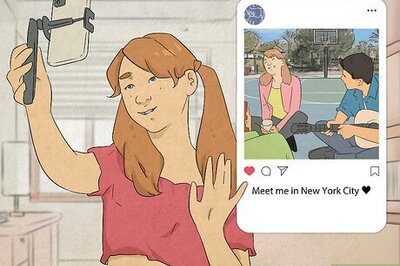
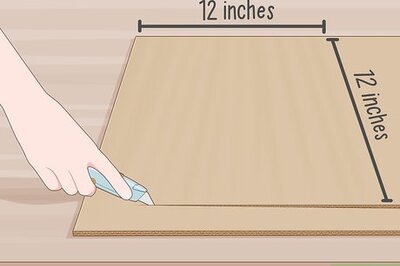

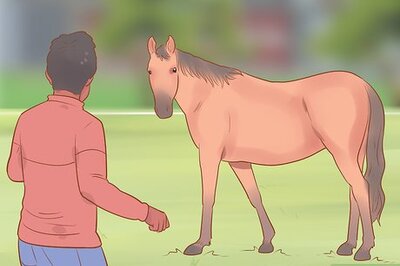
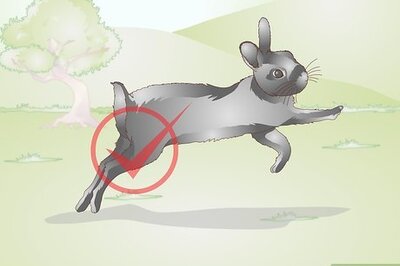


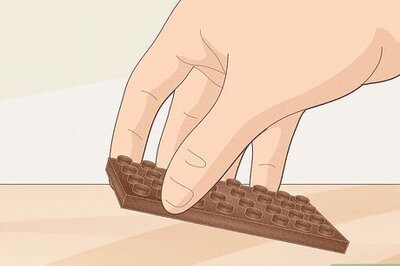
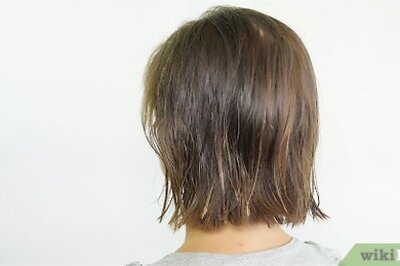
Comments
0 comment